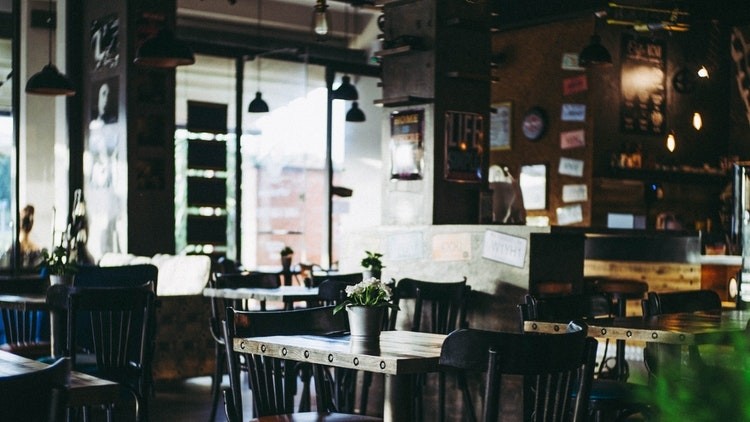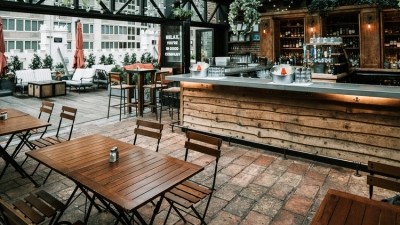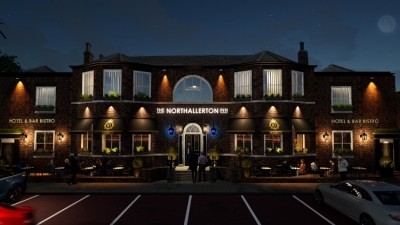More than 36,000 pubs to be placed in highest two tiers

This works out to 98% of all pubs in England (37,616 as of September), data from real estate advisor Altus Group has found.
In a statement to the House of Commons today (Thursday 26 November), health secretary Matt Hancock outlined how a handful of areas will be in tier one, the majority of England in tier two and a large number in tier three.
The new tiered restrictions will be reviewed after two weeks.
When the national lockdown restrictions end next week (Wednesday 2 December), the areas that will be placed into tier three includes Greater Manchester, Bristol, Birmingham, Hull, Lancashire, Newcastle, Wolverhampton, Kent and Leeds.
It means pubs have to remain closed but can continue to operate takeaway, delivery and drive through services.
As stated, most areas will be in tier two meaning pubs can only operate as restaurants, offering a “substantial” meal and can only serve alcohol as part of this.
These include London, Liverpool, Kent, Sussex, Dorset, Devon, Norfolk, Suffolk, Essex, Cumbria and York.
Just three areas will be in the lowest tier (tier one) when national restrictions are lifted, where pubs can remain open, adhere to the new 11pm curfew (calling last orders at 10pm) and the Government reinforcing the importance of working from home wherever possible. These are Cornwall, Isle of Wight and the Isles of Scilly.
The full list from the Government is available here.
Analysis from real estate adviser Altus Group found there will be 16,010 pubs under tier three restrictions and 20,813 in tier two.
Enhanced support needed
Altus head of property tax Robert Hayton said 98% of all pubs in England fall within the tier two or three areas and face remaining closed.
He added: “Since the beginning of 2018, 1,722 pubs have ‘vanished’ from the communities they once served, having either been demolished or converted into other types such as homes and offices.
“Current levels of support will have to be enhanced for those viable businesses facing a further period of closure during this critical trading period to ensure they will eventually reopen and aid the recovery.”
Greene King chief executive Nick Mackenzie described the tier system as "lockdown in all but name" for pubs, during the "most important trading month of the year".
"This puts hundreds of thousands of jobs at risk and places the future of British pubs in even greater doubt for the years ahead," he said.
"Out of more than 2,300 pubs in England, we will have just six in tier one areas, with pubs in tier three closed and pubs in tier two unlikely to be profitable.
"Pubs have been at the centre of communities for hundreds of years and we urgently need additional support to help the industry through the winter to the spring when the effects of better weather and a vaccine can hopefully, begin to show.
"We are ready to open and trade and have invested millions of pounds in safety measures but large numbers of pubs are simply not financially viable under the tier two and three restrictions."
JD Wetherspoon (JDW) outlined how many pubs it has in each tier with 13 pubs in England classed as tier one.
In addition, there are 51 pubs in Wales, where the regulations approximate to tier one in England.
It has 435 pubs in tier two, including 17 Scottish pubs, and 366 pubs, which will remain closed.
Of these, 315 are in England's tier three with 51 in Northern Ireland and Scotland.
The pubs in the highest tier will remain closed as JDW stated opening for takeaways was unlikely to be a realistic proposition.
Chairman Tim Martin said: "The company has campaigned for pubs to revert to the rules agreed between the pub industry, civil servants, local authorities and health officials, which were introduced when pubs reopened in July.
“These rules greatly reduced pub capacity and provided strict social distancing and hygiene standards but, with difficultly, allowed pubs to trade viably. It is very disappointing that yet another raft of regulations has been introduced, which has effectively closed half our pubs. In reality, the Government has extended a form of lockdown, by stealth, in large swathes of the country.
“There has been no evidence of widespread transmission of the coronavirus in pubs, as the Test and Trace system has evidenced."
The current proposed measures will cost pub group JW Lees about £2m – a third of a normal year's annual profits owing to the timing of the restrictions, according to managing director William Lees-Jones.
He said: "We are feeling very disappointed by the Government’s current attitude towards pubs, especially when we have made our pubs safe places to be with investment and training. We are bearing the financial brunt of the Winter Plan, with all of JW Lees tenants paying no rent, beer stocks built up ready for Christmas and pubs ready to reopen next week.
“We expect reasonable compensation from Government since the current grants and furlough support in no way make up for the pub sector being sacrificed at our busiest time of the year."
The Prime Minister has lost his way, claimed Marston's chief executive Ralph Findlay.
He added: “In early July, we were credited for having opened safely and responsibly. Since the end of September, the UK Government has leaked, launched, and layered a labyrinth of legislation on pubs, and pubgoers and our employees are paying a heavy price. This latest plan smacks of the fog of politics, and the Prime Minister has lost his way.”
The new tiers will see more than 120,000 hospitality venues in England placed into tier two, UKHospitality (UKH) estimated.
Chief executive Kate Nicholls said: “The new tier system will deliver another huge blow to hospitality, with 98% of trade now happening in tier two or three regions. This will see £7.8bn of trading wiped out compared to last year if the restrictions last all of December.
“These are safe spaces for people to meet, relax and socialise and the sector is desperate to get staff back to work, open their doors and, in the long term, diminish reliance on the public purse and begin driving economic recovery.
“The new tiers will see over 120,000 venues across England placed into tier two, with tens of thousands of these forced to close as they are unable to provide a table meal, either physically or financially. This affects the employment of nearly 1.5 million people. Under this severe a restriction, 94% of our members say they will be unviable or trading at a loss.
“For the 38,000 businesses in tier three, employing more than 540,000 there is no option but to provide takeaway or close altogether.”
She reiterated calls for additional support for venues placed in the strictest measures to help them survive.
Nicholls added: “We still have not seen any evidence that hospitality venues – which have invested great time effort and money to making their spaces Covid-secure-secure – are a problem area in terms of infection, so it seems unfair and arbitrary that hospitality is being dealt such a harsh hand. According to a recent UKH survey, 72% of visitors to hospitality were satisfied with the safety of our venues, compared to just 11% who were not.
“It is now more vital than ever that the Government provides urgent further financial support for this sector. If it does not, we are looking at huge numbers of job losses, businesses permanently closed and the landscape of hospitality in this country fundamentally degraded for the foreseeable future.
“If we want to see businesses survive, then we desperately need a replacement for the Job Retention Bonus Scheme and for the Government to extend the rent moratoria and broker a solution to tackle the issue of rent debt that has built up. If we want to give those businesses that do survive this winter a better chance at succeeding next year, then the VAT cut and businesses rates holiday must now be extended and grants provided to support businesses paid out at the earliest opportunity.”
The future of hundreds of breweries, thousands of pus and tens of thousands of jobs hang in the balance, stated British Beer & Pub Association boss Emma McClarkin.
“With 99% of the country under tighter tier two or tier three restrictions, there will be carnage unless the Government acts immediately. Pubs face full closure if they are drinks led or in tier three. We need the Government to recognise the impact of these restrictions and urgently provide more financial support," she said.
“We cannot overstate how serious the situation is currently facing our staff, communities and businesses. The future of hundreds of breweries, thousands of pubs and tens-of-thousands of jobs hangs in the balance. The focal point of countless communities in every region of the UK could be lost forever, the social consequences of that do not bear thinking about.”
Devastating news
Night-Time Industries Association CEO Michael Kill said the announcement brought a stark reality to the night-time economy and hospitality businesses, diminishing hopes of trading through the key festive period for many, with a long winter ahead fighting to survive.
“Devastating news particularly for the Midlands and the north of England, Manchester, Birmingham and Newcastle which have been hardest hit with the implementation of tier three, with the majority of regions being placed in tier two and very limited areas in tier one,” he added.
“Industry and business leaders are speaking up, highlighting the immense impact of restrictions to their sector, individual companies releasing huge redundancy figures, business owners suffering from mental health, and suicide rates within the sector steadily increasing.”
“The Government must compensate these businesses for the period of time they have been closed, and the loss of business suffered due to restrictions through the festive period”
“The sector has suffered horrendously since the start of the pandemic and is bearing the burden, so that other sectors are able to open during the festive period.”
Campaign for Real Ale (CAMRA) chairman Nik Antona said the announcement confirmed licensees’ worst fears with all but three council areas being placed into the top two tiers.
He added: “Pubs will either be closed or only able to open if they are serving substantial meals. This is especially devastating in the run up the Christmas, where people in tier three areas won’t be able to go to the pub at all, and those in tier two areas won’t be able to visit to socialise safely with those outside of their household, which will increase feelings of loneliness and social isolation after a year that has been tough for many.
“CAMRA has been clear – we do not think that evidence has been produced to justify extra restrictions on hospitality, and particularly wet-led pubs, but if the Government wants to proceed, they must announce more financial help.
“It is really very simple - hospitality businesses have been singled out for extra restrictions, so they must be given dedicated support.
“This needs to take the form of increased grant funding to cover rent and costs, and include an extension to the business rates holiday, and an extension of the VAT cut to alcoholic drinks.
“This is vital to ensure that communities will have locals to return to in 2021 and can once again reap the social and wellbeing benefits of pub-going.”







